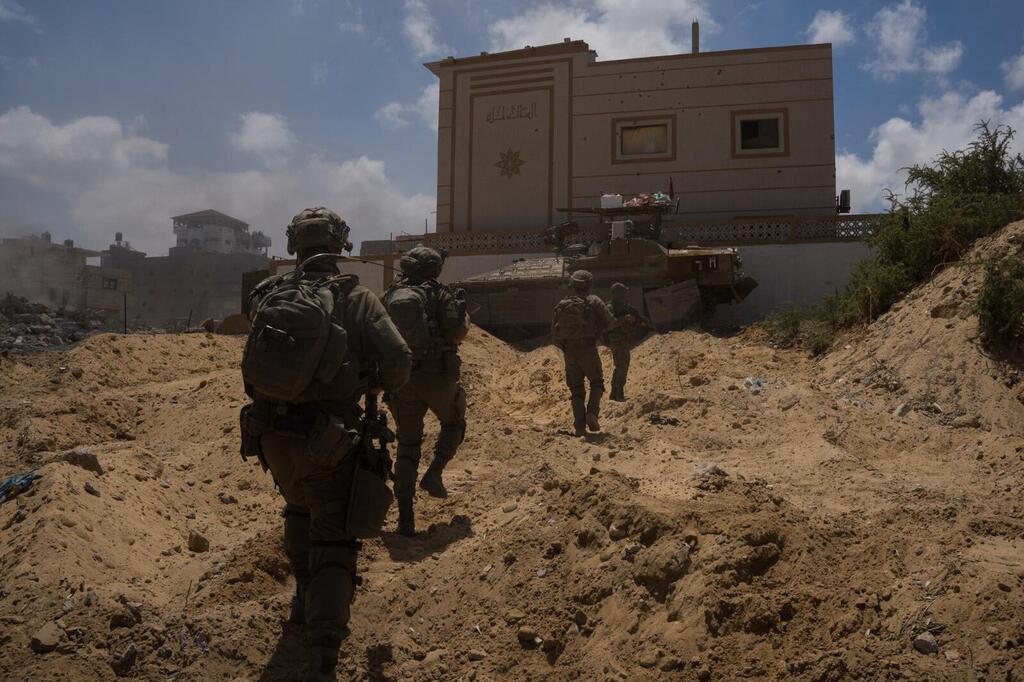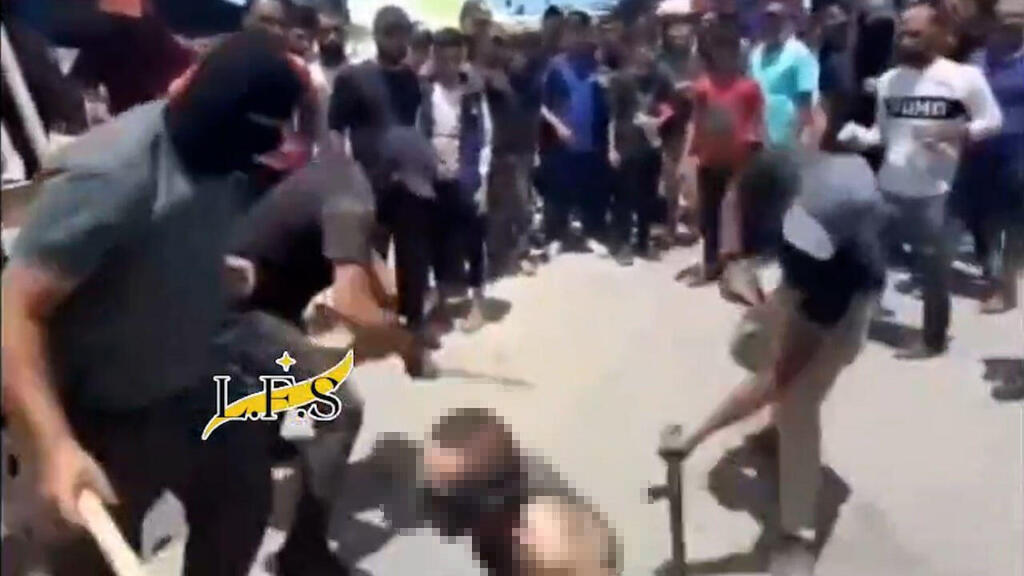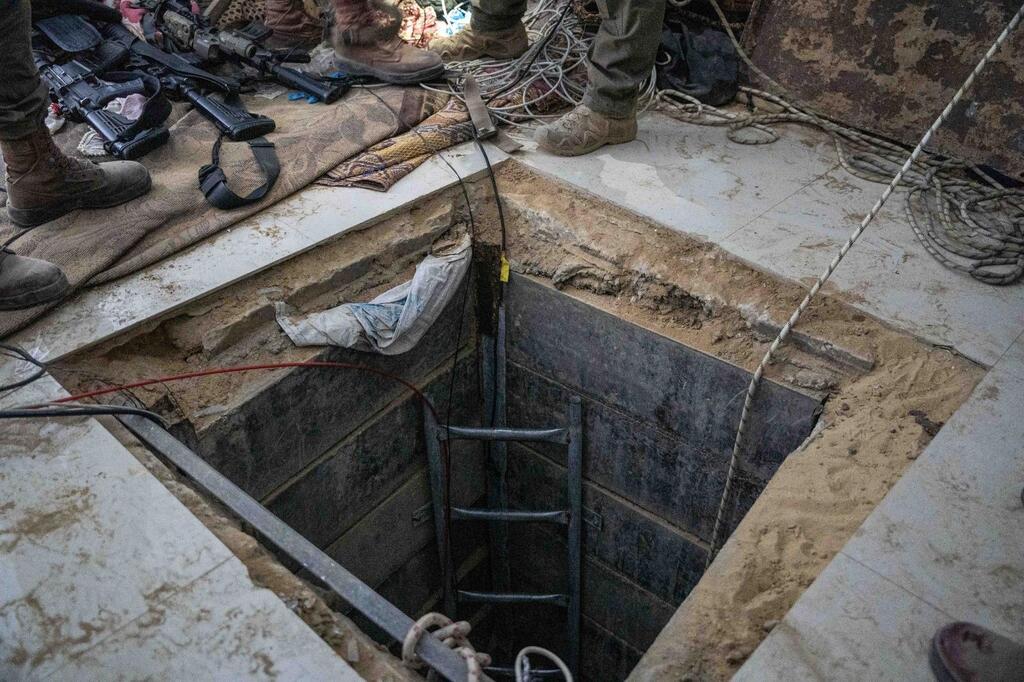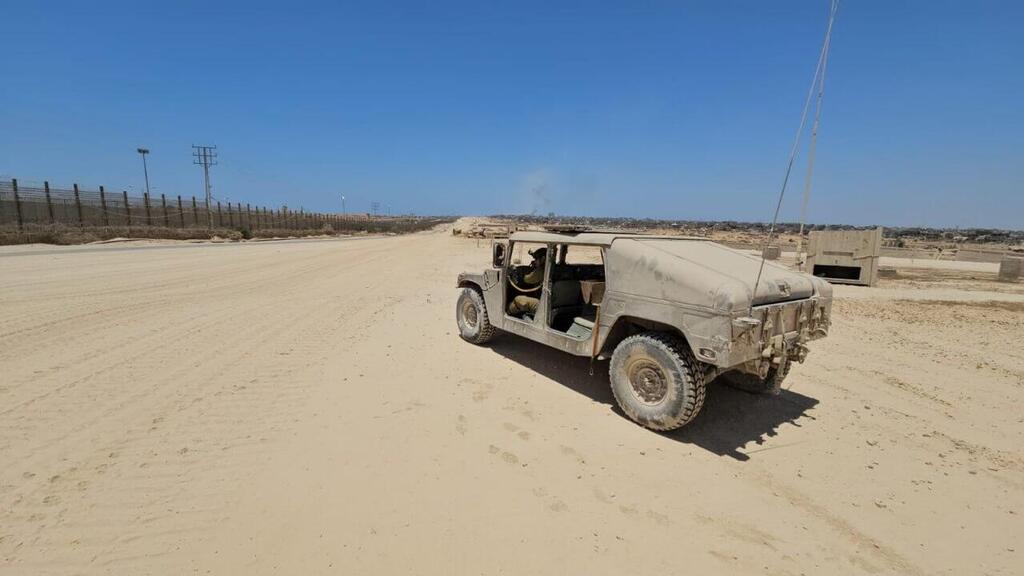Getting your Trinity Audio player ready...
After months of combat, the IDF is preparing for a new reality in Gaza, one largely shaped by the ongoing negotiations. Currently, there are two methods of combat in Gaza. In the north, the IDF has transitioned to the third phase of fighting with raids based on intelligence.
After completing the dismantling of Hamas' battalions, and causing the organization to switch to guerrilla warfare, the IDF now allows the enemy to reorganize and then hits the terror organization again to reduce its numbers to a level that no longer endangers the Gaza-border communities. This fighting in the northern Gaza Strip will incur repetitive and recurring raids to Hamas strongholds to destroy most of the remaining launchers and rockets, as well as production means and facilities.
The goal of the third phase is to keep Hamas in a constant state of retreat. The current situation already allows Israel to implement the day-after plan, intended to create a civilian administration instead of Hamas. Soon, humanitarian zones are expected to be established in northern Gaza. The residents there will go on with their lives and receive humanitarian aid. This model is expected to extend to the rest of Gaza as the IDF and organizations will deliver food, medicine, and essential supplies, which will then be distributed to the population.
Each humanitarian zone will become an enclave with a local government and an international committee with representatives from moderate Arab states which will send a peacekeeping force to maintain order. The Arab force would replace the IDF in securing the humanitarian zones.
Although the plan looks good on paper, its implementation chances are slim, partly because Hamas still exists and will assassinate any figure that undermines its authority, including clan leaders willing to participate in Israel's alternative civil initiative. Defense Minister Yoav Gallant and other officials are confident it is possible and are pressing Netanyahu to implement it.
Prime Minister Benjamin Netanyahu delays introducing this plan fearing the reactions of Finance Minister Bezalel Smotrich and National Security Minister Itamar Ben-Gvir. As a result, Israel is losing valuable time, and Hamas still governs Gaza and can reorganize its military forces, partly by recruiting unemployed youth whose families need money to survive. Until an alternative to Hamas is found, Israel can't completely end the war and secure the Gaza-border community residents.
The tunnel challenge
In central Gaza, the current situation can be characterized as stage II. There are about three Hamas and Islamic Jihad battalions that the IDF has yet to dismantle in the Dir Al-Balah and Nuseirat refugee camps.
In Rafah in southern Gaza, the IDF has been successful above and below ground. The Rafah Division is close to defeating the local terrorist forces but fighting is likely to continue for at least another month. The IDF will continue with the destruction of the Hamas underground system which includes escape and smuggling tunnels under the Philadelphi axis, essential for Hamas to rebuild its strength from Egypt.
The IDF has identified more than 25 tunnels between the Gazan Rafah and the Egyptian Rafah. Some of the tunnels were not blocked on the Egyptian side and still allow Gazans to escape to Egypt. The IDF is investigating the matter, but the main concern for Israel and Hamas is control over the Rafah crossing. Israel will demand supervision before agreeing to vacate the Philadelphi axis.
The terrorists in Rafah mainly use IEDs and more explosives to bring down entire neighborhoods on top of IDF soldiers. The army has already developed operational solutions, including dogs and drones. Hundreds of terrorists fled and will remain in hiding until the IDF leaves the area. However, they left hidden cameras in the area, allowing them to monitor IDF forces to plan their attacks.
Holding key Gaza corridors has also exerted pressure on Sinwar to release the hostages. Agreeing to the hostage deal is likely to require the IDF to give up its hold on strategic corridors and allow the remaining Gaza residents to cross to what remains of their homes in the north. If Sinwar violates the cease-fire or does not release the hostages in full, the IDF will regain control of its corridor dividing Gaza into two sections: the north and the south.
The IDF will remain in the security area, just outside of the Gaza Strip as well as the Philadelphi axis, between Kerem Shalom and the Mediterranean Sea. Israel intends to hold the strategic routes as long as it does not have an agreement with Egypt regarding the Gaza-Egypt border. The IDF would mainly use its control over the Philadelphi route to destroy the tunnels and prevent their reconstruction.
The maneuvering tasks, mainly in Rafah and the center camps, will be completed in a short time. The transition of the entire strip to the third phase can happen in two scenarios. First, a hostage deal can secure a prolonged cease-fire. The IDF will withdraw from most of Gaza, perhaps even all of it, but will continue to maintain a perimeter that will provide security for the surrounding communities. The IDF is also preparing for the possibility that negotiations will blow up and the war will continue. Perhaps coinciding with the war in the north.






